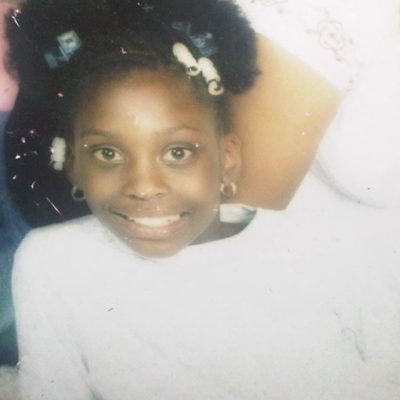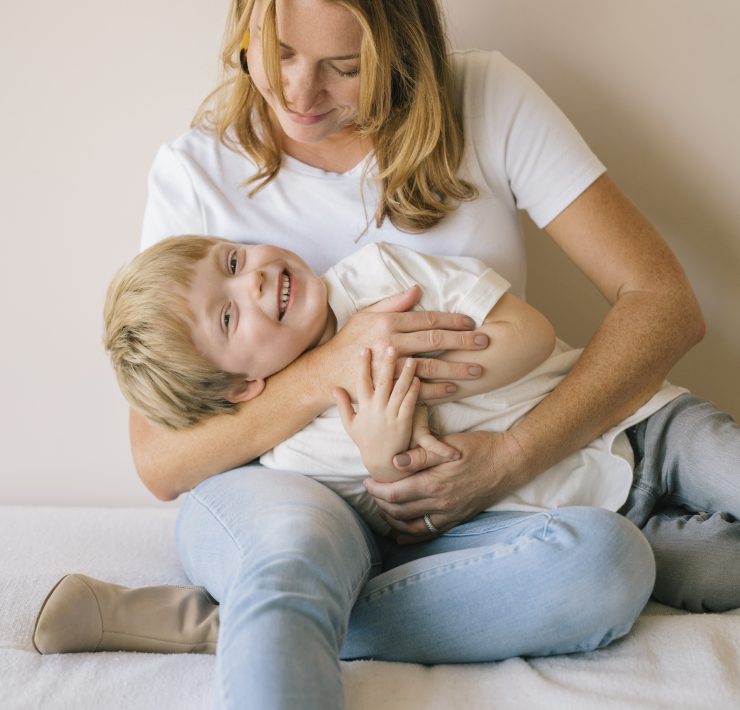
Adoptee Thaicha Branch shares her journey from foster care to adoption, refocusing her trauma, and what foster children need the most.
On Her Experience In Foster Care
I was in foster care from 18 months to three years old, and I remember the entire experience. It was not a fun experience, being bounced from home to home, seeing other kids call their parents Mom and Dad when I had to call my parents Mr. and Mrs. or by their first name. The only thing I wanted was a mom. Whether it be my mom or another mom, I just wanted one. I felt very disconnected from a lot of the people that I lived with. I had to grow up pretty fast. If I hadn’t had my sister, I don’t think I would have made it through. Having her kept me grounded and sane.
My sister and I were adopted when I was three. The minute we met our mom, I knew we could relax, that we weren’t going anywhere, that we were in a place where we could be ourselves, and that the love was unconditional because that’s just the feeling you got when you walked into my mom’s house. The first thing I asked her was, “Can I call you Mom?” That was a very powerful moment for me.

On Being Adopted
Being adopted was the best thing that’s ever happened to me. I remember the day very vividly – what I was wearing, what my mom was wearing, how she called my older sister, who flew back home to meet us. My mom fostered 75 children, and she adopted me and my sister when she was 53. She adopted a total of six children and had her own children as well, but there was never a separation of who I loved more or less. The love was always unconditional from all sides. I was raised in a very close, positive, affirming environment. My older siblings acted as a second set of parents.
Adoption was celebrated inside of our home, but outside, I could feel the air change when I told someone I was adopted. An air of pity. People would automatically think, “You must be traumatized.”
I didn’t tell my best friend I was adopted until I was 18, when my birth mom knocked on my door. She was my best friend since we were eight, but I didn’t tell her I was adopted because I didn’t think it was something I needed to tell her. When I finally did, she said, “Oh my God, that’s why none of your siblings look alike!” It was the most amazing response I could’ve gotten. I was preparing for, “Well, what happened? Did you feel less loved?”
When it comes to being an adopted child, you often let your trauma be the cornerstone of your story when you tell it to other people.
When someone tells me they’re adopted, I get excited! I’m like, “You too?!” They’re usually surprised by my reaction, to find someone else who thinks it’s great. It is great, but most people don’t honor it as such because they don’t understand that love comes in all forms. My best friend is now fostering a 13-year-old girl and hoping to adopt her, and she chose to do that because I’m her best friend and she knows my story. To her, fostering is not taboo.
On Refocusing Her Adoption Trauma
When it comes to being an adopted child, you often let your trauma be the cornerstone of your story when you tell it to other people. In the beginning, when I talked about being adopted, I talked about the abuse that I experienced in foster care as opposed to talking about my family and our dynamic and how great my mom is. We’re conditioned to think, look at the dark side. Now as I’ve gotten older, I’m like no, I’m looking at the light. I’m looking at the light and this a great situation. I would not be where I am without my mom. I’m not going to let the trauma be the cornerstone of my story. I don’t want that anymore because I will adopt a child, and when I do, I want her to know that I’m adopted, and that I chose her out of love just like my mom chose me out of love. That I will love her till the day I die, and that we’re not less of a family, we’re actually more of a family.

On Meeting Her Birth Mom
I met her when I was 18. I wasn’t looking for her, she found me.
My [adoptive] mom made it clear from the very beginning, “If you ever want to meet your birth mom or get to know her, I am not bothered by that. I still love you, and if that’s a part of you that you’re searching for, I support it wholeheartedly.” But for me personally, I was okay with not knowing my birth mom, and I think that’s because I was not confused about who I was. I knew who I was. I am Thaicha Branch. I’m the daughter of Eula Branch. I have a very big family. I had a mom that supported me in anything that I did from Brazilian martial arts to music to skateboarding to wanting to become a writer. She was supportive of every phase and transition in my life, and I think that’s because she didn’t expect me to be anything but myself. There was no carved out plan for “this is how I expect my child to be, and this is all I’m going to support.” You cannot vision boards your kids, whether they’re yours biologically or not.
On The Media’s Portrayal of Adoption and Foster Care
Adoption is viewed negatively because of the way it’s portrayed in the media. We’re depicted as troubled, angry people that go around becoming delinquents to society, and that’s not the case. That’s not the case at all.
The narrative is severely misconstrued. Adopted kids are always problem children or children that came from drugs. Kids that nobody wanted. I’m very tired of the runaway adopted child who is angry at the world and saying “Nobody wants me, I don’t know who I am.”
There is never a proper picture of what the child is going through, only the parent’s experience of the child’s behavior, with no explanation as to where the behavior stemmed from. There is definitely a struggle when it comes to being a foster child because there is insecurity there, and we need to speak to that, but we need to pair it with an understanding adoptive parent who is trying to remedy that insecurity. Of course there were moments when I was growing up where my mom and I had to talk through things, but my mom was patient. She tried her best. She never downplayed any of my feelings.
Being adopted is an empowering thing because somebody chose you, and that’s something we need to speak more to — that you are loved, you are cared about, you are valuable, you are seen, you will be dealt with in a way that you will still feel loved. You’re not going to be dismissed or shoved into the corner. We definitely need to speak more to that.
Whoever wrote the movie Instant Family needs an Oscar. He gets it. He captured everything.
On What Foster Children Need Most
Every child deserves love, whether they’re yours or not. Kids need to know that there are good people out there.
I think that’s something that people need to understand. Even if you’re not going to keep this child long term, they need to know that there are good people out there. My mom fostered 75 children. Some of her [former] foster kids still reach out to her because she showed them kindness. She showed them there’s love in the world. She showed them that they mattered, and those are lasting impressions.
Foster care was very hard. Ages one to five are very crucial in a child’s self-esteem, and I was kind of stunted in terms of not feeling valued or wanted for the first three years of my life. I feel like we need to make it our mission to pour into kids who are in foster care so they’re not walking around with these feelings of insecurity.
Think about it like this: Everybody’s life is a train, and they’re going to their destination, but there are stops along the way, and each stop can impact the next one. If you are a nice little stop for them, they can see that things are not as bad out here as they thought they were. You can show them that there is light at the end of the tunnel. There is light in the darkness. That creates better people.
If you’re just thinking, “Well I’m not going to keep this child, so I’m not going to bond with this child because it’s not mine…”
You can keep the communication open. You can give them your number. You can make an effort to let the child know that they are cared about. What people need to understand is that even if it’s not long term, a little time of kindness is better than no kindness at all.
Jessica Butler is the co-founder of Raise, stepmother of two, and adoptive mother of one. Prior to Raise, she was a writer on USA’s "In Plain Sight" and TNT’s "The Last Ship." She and her husband, writer/producer Warren Bell, co-created the Nick at Nite series "Instant Mom," based on her life as a stepmother. She lives in Los Angeles with her husband and six-year-old son, Levon.


